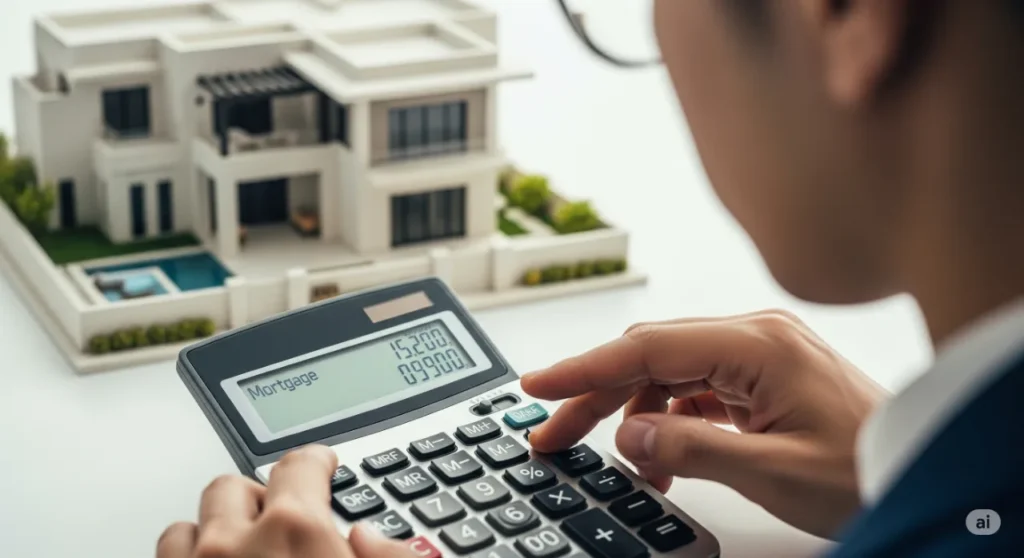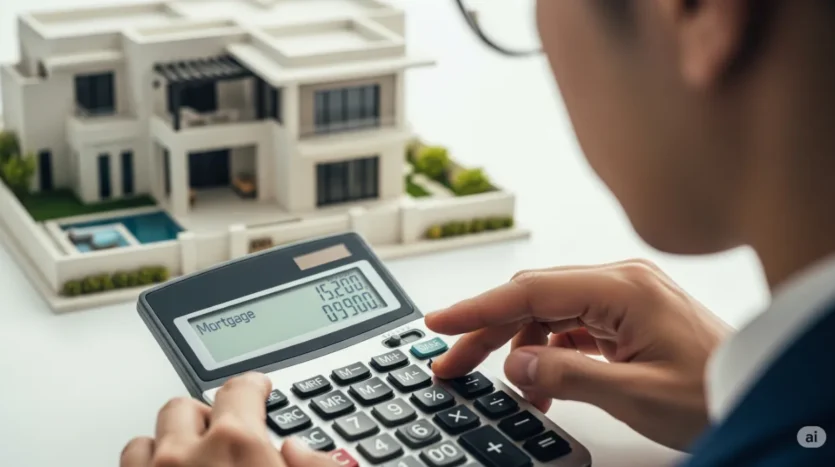The Ultimate Guide to Mortgage Loans for Non-Resident Investors in Dubai
Dubai’s real estate market is a global beacon for investors, offering unparalleled returns, a tax-free environment, and a world-class lifestyle. For international buyers, the key that unlocks this lucrative market is often financing. The most common question we hear is, “Can I, as a non-resident, actually get a mortgage in Dubai?” The answer is an emphatic yes.
While the process is straightforward, it has specific rules and requirements that differ from those for UAE residents. Think of this not as a barrier, but as a clear path to follow. This ultimate guide, leveraging the most current 2025 regulations, will provide you with the expert knowledge and confidence to navigate the mortgage process seamlessly, from initial query to property ownership.
The Non-Resident Advantage: Why Finance Your Dubai Property?
- Leverage Your Capital: A mortgage allows you to purchase a high-value asset without tying up all your liquid capital, freeing up funds for other investments.
- Magnify Your ROI: By financing a portion of the purchase, your return on investment is calculated on your down payment, not the property’s full value, potentially magnifying your gains significantly.
- Access to the Golden Visa: A property purchase of AED 2 million or more can make you eligible for the UAE Golden Visa, and a portion of this can be mortgaged, providing a clear path to long-term residency.
Step 1: Understanding Your Eligibility
Before you even begin browsing for properties, you must first confirm you meet the banks’ core eligibility criteria. This is the foundation of your application.
- Approved Nationality: Banks in the UAE have a list of approved countries for mortgage applicants. Investors from most countries in Europe, North America, the GCC, and parts of Asia are widely accepted.
- Minimum Income: You must demonstrate a stable and sufficient income. According to mortgage experts at Capital Zone, you should have a minimum monthly income of AED 25,000 (approx.$6,800 USD). This can be from salary or self-employment.
- Employment Status:
- Salaried: You will need to prove stable employment with a reputable company.
- Self-Employed: You must show a proven business track record, typically with at least two years of audited financial statements.
- Age Requirements: The minimum age to apply is 21. The maximum age at the end of the loan term is generally 65 for salaried individuals and 70 for the self-employed.
- Healthy Credit Score: A strong credit report from your home country is non-negotiable. Banks will use this to assess your financial discipline and reliability.
Step 2: Mastering the Numbers – LTV, Down Payments, and Fees

This is where the most significant difference lies for non-resident buyers. The Loan-to-Value (LTV) ratio dictates the percentage of the property’s price the bank will finance.
| Property Type & Value | Maximum LTV (What the Bank Lends) | Minimum Down Payment (What You Pay) |
|---|---|---|
| First Property (up to AED 5M) | Up to 80% | 20% |
| Subsequent Properties | Up to 60% | 40% |
| Off-Plan Properties | Up to 50% | 50% |
Source: UAE Central Bank Regulations. Note: Individual banks may offer more conservative LTVs, sometimes capping at 60-65% for non-residents.
Want to see what your potential monthly payments could be? Use our interactive Mortgage Calculator to get a personalized estimate.
Beyond the down payment, you must budget for associated costs, which typically amount to 5-7% of the property price.
- Dubai Land Department (DLD) Fee: 4% of the property price + admin fees.
- Mortgage Registration Fee: 0.25% of the loan amount.
- Property Valuation Fee: AED 2,500 – AED 3,500.
- Bank Processing Fee: Up to 1% of the loan amount.
- Life Insurance & Property Insurance: These are mandatory.
Step 3: The Ultimate Document Checklist
Preparation is everything. Having these documents ready will dramatically speed up your application.
For All Applicants:
- Clear copy of your valid passport.
- Proof of address (e.g., a recent utility bill from your home country).
- Latest credit report from your home country’s official credit bureau.
- Personal bank statements for the last six months.
Additionally for Salaried Applicants:
- Salary certificate from your employer.
- Payslips for the last six months.
Additionally for Self-Employed Applicants:
- Company registration/trade license.
- Audited financials for the last two years.
- Company profile and business bank statements for the last 6-12 months.
Step 4: The 7-Step Path to Ownership
- Expert Consultation & Pre-Approval: This is the most critical first step. Partner with West Gate Dubai to connect with our network of elite mortgage brokers who specialize in non-resident financing. They will assess your profile and secure a mortgage pre-approval, which gives you a solid budget and makes you a credible buyer.
- Property Selection: With your pre-approval in hand, you can confidently explore our curated portfolio of properties for sale in Dubai.
- Sign the Agreement: You will sign a Memorandum of Understanding (MOU) for a ready property or a Sale and Purchase Agreement (SPA) for an off-plan project.
- Formal Bank Application: Submit your full, organized document package to the bank for formal underwriting.
- Property Valuation: The bank will commission an independent valuation of the property to confirm its market worth.
- Receive the Final Offer Letter: Once approved, the bank issues the final, legally binding mortgage offer.
- Complete the Transfer: You will meet the seller at the Dubai Land Department trustee office to finalize the transfer. The bank pays its portion of the funds directly to the seller, and you receive the keys and your Title Deed.
Frequently Asked Questions (FAQs)
Can a non-resident get a mortgage in Dubai?
Yes, absolutely. As this guide details, non-residents can secure mortgages in Dubai provided they meet the specific eligibility criteria regarding income, nationality, and down payment. The process is well-established.
Can non-residents get a loan in Dubai?
Yes. While this guide focuses specifically on mortgage loans for property, non-residents can also be eligible for other types of financing, such as car loans, though the requirements are often stricter than for residents.
Can a foreigner get a mortgage loan in Dubai?
Yes. The terms “foreigner,” “overseas investor,” and “non-resident” are used interchangeably in this context. If you do not reside in the UAE, you can get a mortgage loan by following the process outlined here.
Can non-residents get a home loan in the UAE?
Yes. The regulations set by the UAE Central Bank apply across all seven emirates. While this guide focuses on the dynamic Dubai market, the core principles of eligibility, LTV ratios, and documentation are applicable whether you’re buying in Dubai, Abu Dhabi, or elsewhere in the UAE.
Your Expert Partner in Dubai Real Estate
Navigating the mortgage process from another country can seem intimidating, but it doesn’t have to be. With the right knowledge and the right partner, it becomes a clear and manageable journey.
At West Gate Dubai, we don’t just sell properties; we build investment futures. We provide our international clients with end-to-end support, from initial consultation and connection to specialist mortgage advisors, to finding the perfect property and even managing it for you through our property management services.
Don’t let borders limit your investment ambitions. Take the first step towards securing your piece of Dubai.




